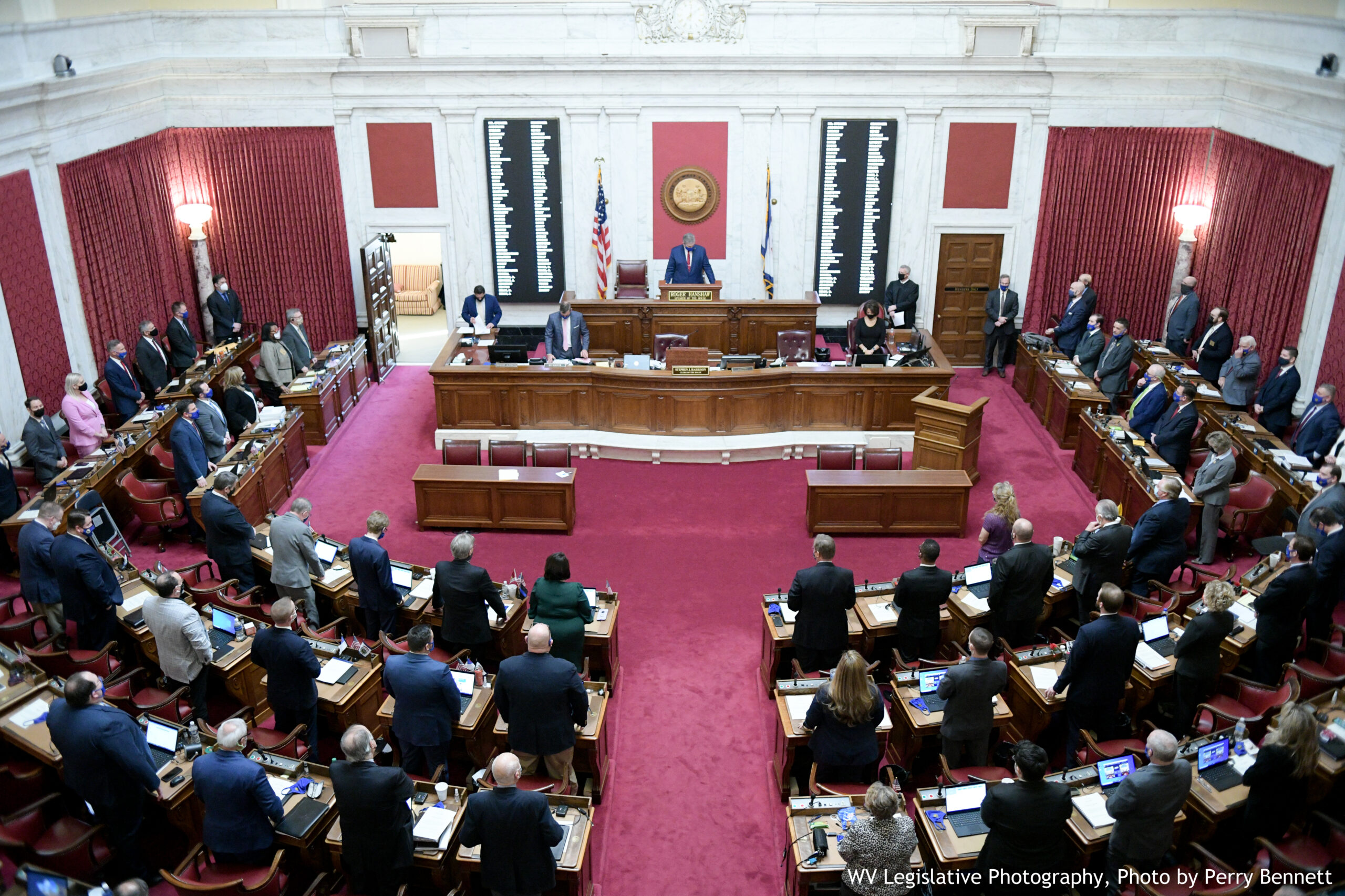MORGANTOWN – WVU economics professor John Deskins told state legislators Wednesday that the economic collapse caused by COVID-19 was the fastest in modern history, but the quick turnaround was a surprise.
But a complete turnaround, he said, will take all of 2021 and into early 2022.
Deskins heads the WVU business school Bureau of Business and Economic Research and was delivering his annual West Virginia Economic Outlook presentation prior to the noon opening of the legislative session.

Deskins said 2019 wasn’t a great year, with jobs lost in the natural gas pipeline industry. But January and February of 2020, things were stable and growing a bit.
Then COVID caused a plummet in March and April. National GDP fell more sharply than in any period since the Great Depression. “We’ve never seen anything like that before in economics.”
May through August saw a surprisingly, nearly as sharp, recovery but the state economy has flattened out since, and it won’t be until early 2022 that we return to where we were at start of 2020, he said. The state lost 94,000 jobs in March-April, a 13% drop. May through August saw 57,000 come back, but it’ll take time to regain the other 37,000.
Deskins noted that West Virginia could have suffered more. While we saw a 13% job loss, the U.S. average was 14% and four of our neighbor states – all but Virginia – fared worse, seeing losses from 14% to 18%. On the other hand, our 9% recovery is 1% better than the national average but below Pennsylvania’s and Kentucky’s 12%.
Not unexpectedly, he said, leisure and hospitality took the biggest hit in West Virginia, as elsewhere: 39,000 jobs lost, only 26,000 regained.
Looking ahead, Deskins said our continued poor labor force participation rate – the percentage of people who are able to work and want to work – is still a problem.
“This is our biggest long-term challenge,” he said.
The national rate is 63%; West Virginia’s is dead last, at 55%.
“We’re never going to achieve the prosperity we hope for in our state if we have 8% of our population sitting on the sidelines” compared to the nation, he said.
People who’ve retired or are in school or have left the workforce to be stay-at-home parents factor into the rate, he said. But we still face our three perennial problems: Lack of an educated, skilled workforce; poor health; and the drug crisis.
Looking ahead three years, from 2020 through 2023, Deskins said the state economy could see some overall growth, perhaps as high as 2%, but probably not. The wounded retail, leisure and hospitality industries will remain weakened during that period.
“That sector is what’s really weighing down the overall state,” he said.
Deskins repeated his two annual points: We need industrial diversification and a pro-entrepreneurial environment.
Regarding diversification, the state needs to harness the power of its energy industry – particularly keeping our natural gas here to grow that manufacturing segment – but we need to have more than that.
And the way to diversify, he said, is to promote entrepreneurship. Entrepreneurship is messy; most startups fail. But those that succeed help determine the right industrial mix for the state.
Legislators should consider how every policy will make the state more pro-entrepreneurial, he said.
Deskins concluded with some thoughts on the current buzz stimulated by COVID: remote workers.
It’s an entirely new strategy, he said, to market ourselves to people living in places like New York and Chicago, where the cost of living is much higher. Now that people are discovering remote working, there’s no reason they can’t move here and keep working there.
“I think this is a great opportunity,” he said.
Tweet @dbeardtdp




